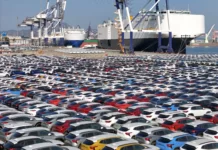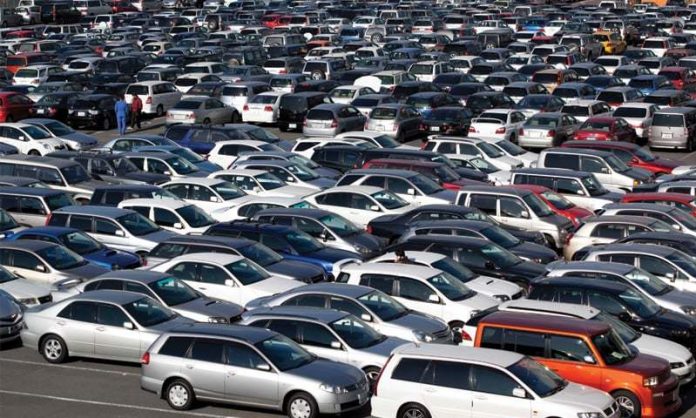LAHORE: Pakistan Automotive Manufacturers Association (PAMA) in its budget proposals has proposed some tax measures to reduce the cost of locally produced vehicles and make these more affordable to consumers.
According to PAMA, the 1 per cent additional duty through amendment in SRO 1178(I) 2015, is negatively impacting the highly cost-sensitive sector.
“By exempting the imports made under SRO 655(I)/2006 and SRO 656(I)/2006 from additional customs duty under SRO 1178(I)/2015, the government can help reduce the cost of vehicles being produced locally,” suggested PAMA.
Moreover, 5 per cent to 30 per cent regulatory duty on steel being imported under HS codes 72.08, 7209, 7210, 7213, 72.14, 7305 and 73.18 has been imposed. These steel items are basic raw materials of the auto industry that are not being manufactured locally and continued imposition of RD at such a high rate is unbearable as it increases the per vehicle cost by Rs3,000 to Rs5,000.
“It is proposed to include imports made under SRO 655(I)/2006 as exempt from regulatory duty under SRO 1035 (I)/2017, (RD notification) as such exemption has also been given to various other sectors under the clause of the said SRO,” said PAMA.
PAMA also suggested amendments in Section 148 of Income Tax Ordinance to reduce the withholding tax rate on import of raw material, plant and machinery back from 5.5 per cent to 1 per cent which has gradually increased over the years. Though rules for exemption certificate were introduced in Finance Act 2014 but stringent rules made it difficult to avail the facility. “The criterion for issuance of exemption certificate should be made more rational,” suggested PAMA.
Pama further suggested that withholding tax on the proceeds of exported good at 1 per cent should be reduced to 0.5 per cent as recommended by the Engineering Development Board to make the exports more competitive in the international market and achieve the export target.
“Automobile sector is not zero-rated and the whole chain is already heavily taxed so this withholding tax is very harsh for exports. Since, this deduction is mandatory and considered as a final payment, exporters of the engineering products have to bear this cost even when they are exporting on marginal profits or making a loss,” said PAMA.
PAMA also pleaded for removal of RD on aluminum alloy (PCT 7601.2000) and carbon steel round bar (PCT 72.28) from SR number 457 and 478 of SRO 1035(1)2017 dated; Oct 16, 2017. RD was imposed in order to protect the local steel industry. This primarily included CRC sheet and deformed bar (Sarya) manufacturers for construction of grade steel. RD was however imposed across the board on all kinds of steel related items including carbon steel round bar (auto grade steel) used by the forging industry as a raw material.
PAMA implored upon the government to abolish super tax that is discriminatory and unjust for the large corporate sector and should be eliminated from 2018-19 in order to rebuild confidence with the foreign and local investors. It pointed out that in the past three years, basic corporate tax rate has been reduced by one percent each year, but the imposition of super tax at 3 to 4 per cent, has not only negated the impact of the reduction but has actually increased the effective tax rate.
It also demanded that the rate of initial allowance should be restored to earlier rates of 50 per cent for plant and machinery and 25 per cent for buildings. It regretted that through Finance Act 2013 and 2014, the rates of initial allowance in respect of addition to fixed assets were revised. The rates substituted by the aforementioned Finance Acts should be restored in order to encourage investment in fixed assets.
Moreover, the PAMA said that Section 65A, which provides tax credit of 3 per cent of tax payable to person registered under Sales Tax Act, 1990 subject to condition that at least 90 per cent of total sales are made to persons registered under aforesaid act, was withdrawn vide Finance Act, 2017; it should be restored.
Finally, the PAMA said that if the purchases are made from a duly registered sales tax supplier verified by the FBR website the onus of sales tax not paid by registered supplier should not fall on the buyer. This is an FBR related administrative issue and penalising buyers is against norms of justice.
























